
Like so many women, I began drinking during my freshman year of college. I did plenty of stupid things during those first drinking sessions. Luckily, it was nothing that strong coffee and an Advil couldn’t fix—except for the weight gain.
When I was out, I’d down a couple of shots of Fireball, chase them with soda, and follow that up with a game of flip cup. (Spoiler alert: If you lose, you end up chugging beer. I was not very good.) During those first few months as a drinker, I also downed a good bit of “jungle juice,” a frat basement concoction of cheap liquor, soda, fruit juice, and whatever else they had on hand. I get a sugar rush just thinking about it.
Then, after drinking plenty of empty calories, I fed my booze-fueled cravings with whatever I could get my hands on—anything from bags of chips to Ben and Jerry’s.
The next morning (er, afternoon) when I woke up, I was in punishment mode. I’d subsist on veggies and tofu in an attempt to make up for my late-night habits. I still exercised, but I didn’t enjoy it anymore. In the past, I had loved waking up early for morning workouts. But now, thanks to my drink and sleep-it-off schedule, I was forced to exercise later in the afternoon. And since I was hungover and bloated from junk food, those workouts felt pretty crappy.
To be honest, I’m not sure how many drinks I downed each week, but it was more than five drinks during any given night out. If my classwork was light, you could expect to see me out four nights per week.
By the end of my freshman year, I put on 15 pounds. And as a 5′ 2″ woman, it was obvious that I’d gained weight in my stomach and lower back.
I knew if I wanted to say goodbye to the weight, I’d have to say goodbye to the booze.
Not even a week after my final days as a college freshman, I went on a family vacation. Needless to say, I wasn’t taking shots and drinking jungle juice with my mom and little sister.
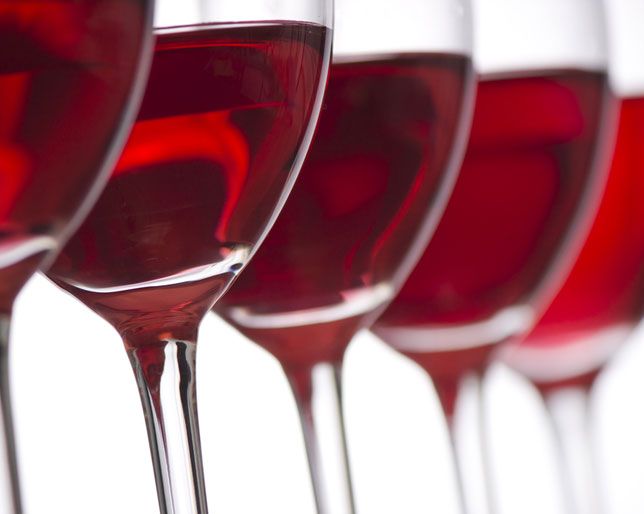
Instead, I found myself naturally reverting to my healthier habits. For the first time since picking up drinking, I woke up for my early morning runs. At night, I no longer craved carbs and fat. There were no more morning trips for bagels (yes, bagels plural) and coffee to tend to my hangover. It was amazing how much better I felt. That’s when I realized that I didn’t want to drink alcohol anymore.
But it took me a few months of awkwardly trying—and sometimes failing—to avoid it before I worked up the courage to really cut it out.
At first, when I went to a party and someone offered me a drink that was already poured, I’d take it, say thanks, and hand the drink off to a friend. Occasionally, I just awkwardly sipped it because I didn’t want to say no and have to explain why. Eventually, I got to the point that I was able to say, “No thanks, I’m not drinking.” Most people didn’t care.
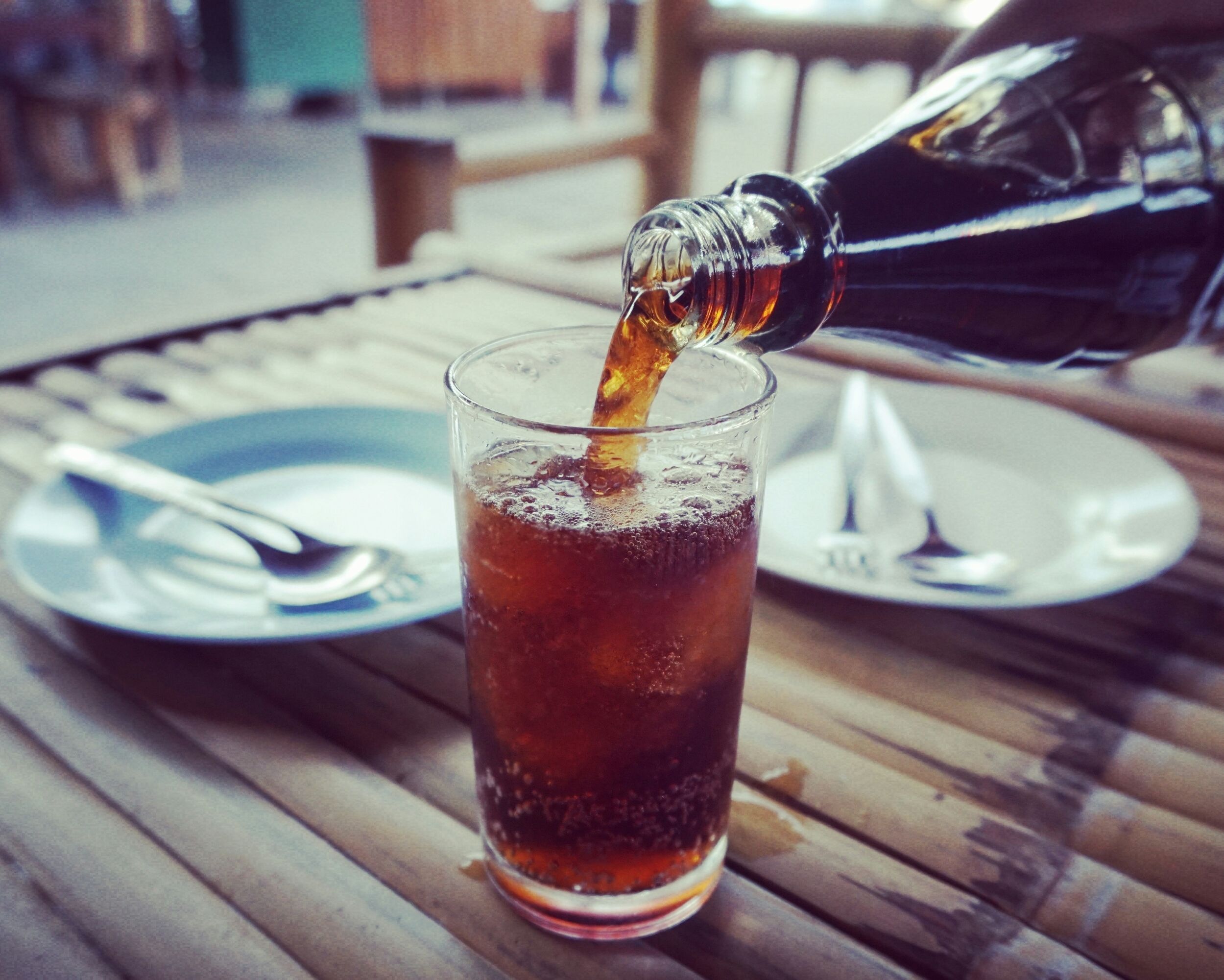
Without alcohol in my life, I soon found myself getting more into fitness, which made it even easier to turn down drinks. I looked forward to my morning workouts and booze was not going to get in the way of that. Bonus: I had no reason to mow down junk food after a night out or starve myself during the day. I was starting to find balance.
Of course, the changes I saw in my body also made abstaining easier. My body went from what I’d definitely call “skinny fat” to lean and muscular.
The weight around my middle was the first to go once I cut out alcohol. After about six months of not drinking, I lost all of the booze belly and the 15 pounds I gained.
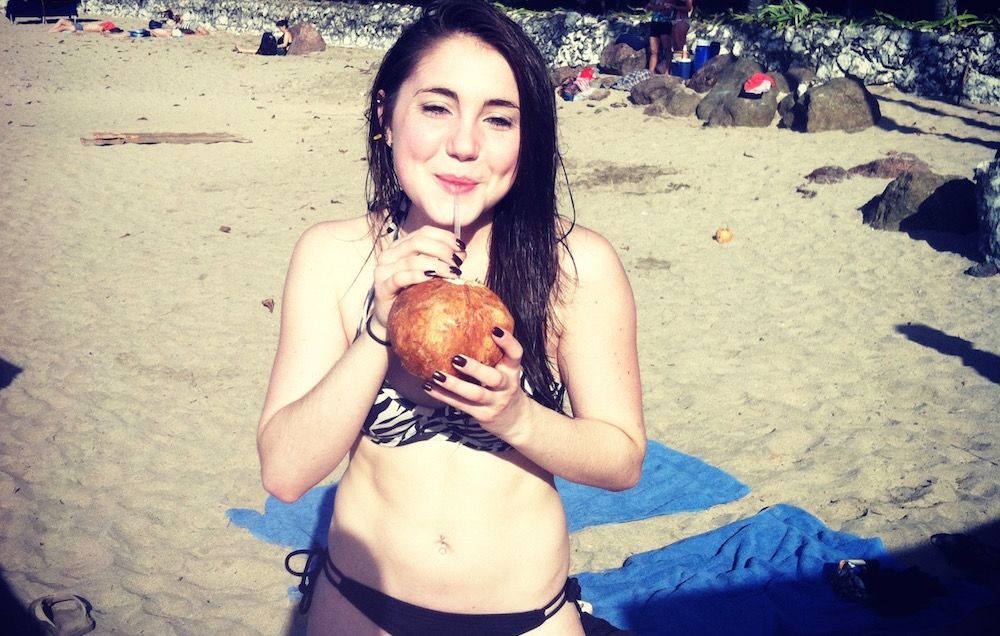
Now, three years later, I live in New York, the city that never sleeps, and I’m constantly around alcohol. But I rarely drink.Most of the time, I stick to my guns and, if someone offers me a drink, I say, “no, thanks” or that I don’t really drink, and then conversation continues as usual. I don’t even bother to explain why unless someone is genuinely curious.
However, every couple of months or so, usually when a special occasion pops up, I’ll enjoy one glass of wine or a simple cocktail (like a vodka soda). I skip margaritas, rum and Cokes, or anything else that’s overloaded with sugar. And, yes, even when enjoying healthier drinks, I limit myself to just one glass. I find that one drink doesn’t keep me from making healthy decisions—and it’s much easier to stop after one than after two or three.
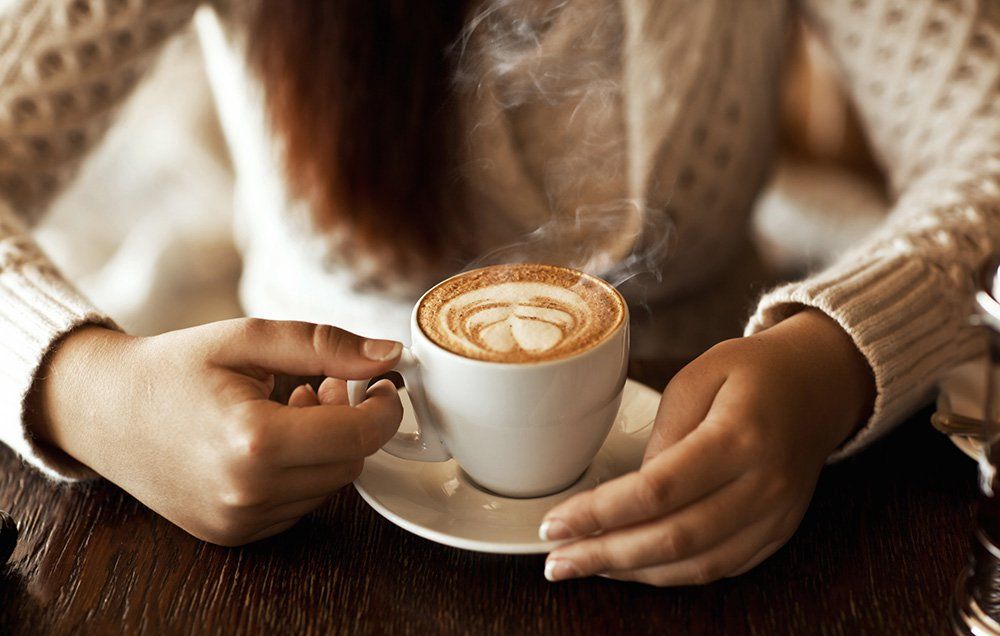
In case you were wondering, I don’t feel like I’m missing out on anything by drinking alcohol so rarely. Rather, I feel like it actually helps me have a healthier relationship with food, exercise, and my body. As far as I’m concerned, that’s not worth missing out on. —McKenzie Maxson
How does alcohol affect your weight?
It’s not just the booze itself that racks up calories and contributes to weight gain (though each drink, whether it’s light beer or a mixed drink, adds up to at least 100 to 110 calories, according to the U.S. National Library of Medicine). The nutritional choices you make while under the influence aren’t optimal either.
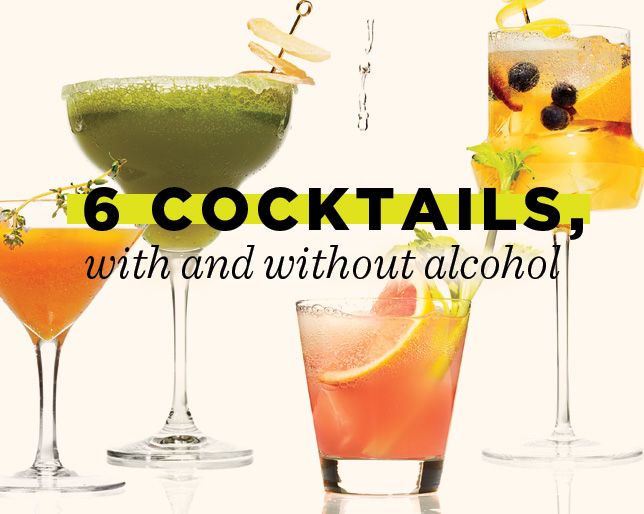
A study from the journal Appetite found that moderate drinkers were 24 percent more likely to order something savory like salty fries, which may be the only edible item at your local dive bar, after drinking. And it’s not just the quality of food that affects your weight but the quantity you’re taking in, especially if you didn’t start off the evening with a hearty meal.
And if you work out, drinking on the reg can make matters worse for your health. “If someone is in the habit of drinking consistently, especially an athlete, this leads to dehydration and depletion of certain necessary vitamins and minerals as a result, as well as sluggishness because you’re not getting the hydration your body needs,” says Linzy Ziegelbaum, MS, RD, CDN, founder of LNZ nutrition. It also impairs your sleep-wake cycle too. That overall sluggishness and lack of sleep that come from alcohol may contribute to consuming more calories and weight gain, research published in Nutrition and Diabetes shows.
Even if you don’t drink heavily but like to enjoy a drink per night (which is defined as “moderate” drinking, btw), even doing a dry January may improve your food choices and therefore your weight, sleep quality, mood, and performance—both in the gym and at work, Ziegelbaum says. A recent Chinese study backs up those claims and showed that giving up drinking can improve your mental health, too.
What are the other health benefits of quitting drinking?
There are plenty of other perks to easing up on alcohol besides weight loss. This is what you can expect if you quit drinking for a while.
More energy
“It may sound counter-intuitive, since most of us are likely to quickly fall asleep after a night of drinking more than usual, but too much alcohol actually screws with your sleep status,” says Brigitte Zeitlin, RD, owner of BZ Nutrition in New York City.
She adds that, after having a few drinks, your body doesn’t get a chance to reach the deep sleep (a.k.a. REM sleep) that you need to help your body de-stress, repair, and replenish itself for the upcoming day.
When you ditch the alcohol, however, you won’t have those sleepy-yet-restless nights. “Being sober will actually help you sleep and have you feeling more restful and energized in the mornings,” says Zeitlin.
Clearer skin
Alcohol is a diuretic, which means it can make you go to the bathroom more frequently—and ultimately leave you a bit dehydrated, says Zeitlin. And that dehydration can take a serious toll on your skin.
“By ditching the alcohol and upping your water intake, it’s really a win-win for your hydration status and will leave your skin feeling healthier and looking more radiant,” she says.
Plus, the high levels of salt and sugar content in alcoholic beverages may trigger the hormone IGF-1, which causes an over-production of oil in your skin (hi, pimples!). Pair this with spiking insulin levels that cause inflammation and you’ve got yourself a recipe for acne. A booze hiatus can potentially improve acne for those who have it, as previously reported in Women’s Health.
A stronger immune system
Being drunk can suppress your immune function, which can make you more vulnerable to the pathogens that cause the cold and flu, among other things, says Keri Peterson, MD, a WH advisory board member. In addition, frequent drinking can cause inflammation throughout the body. All of this means that taking a break from booze could help you better fight off any seasonal illnesses. Getting better sleep because you’re sober certainly doesn’t hurt either.
Less anxiety
The day after drinking, you might have the typical nausea and headache that come with a hangover. But you might also experience what’s called “hang-xiety,” or anxious feelings that are experienced as part of a hangover, says Dr. Peterson. If you stay away from booze, you’ll be hangover and hang-xiety free, which means more peaceful nights and less worrisome mornings.
Better overall health
As your body adjusts to a lack of alcohol, your blood pressure will likely lower and your liver will heal from any effects of heavy or binge drinking, says Dr. Peterson. You’ll also likely experience less headaches, which can be brought on by dehydration from drinking.
What are some tips for quitting or cutting back on alcohol?
If you’re interested in cutting back on drinking, figuring out how to turn down a drink now will help you avoid awkward conversations later on, says Vanessa Kennedy, PhD, director of psychology at Driftwood Recovery. “Planning what you are going to say and what your boundaries are ahead of time can help you deal with these situations when they arise.”
Some ways to say no include being honest and saying you’re cutting back, or simply saying, “No thanks, I’m good.” You can handle the conversation however you feel comfortable doing it, but rehearsing before can help it flow more easily. Don’t worry about offending others while saying no, though. “Most likely, people who care about you will be supportive and encourage your efforts to stay sober,” says Kennedy.
You can also make it a bit easier on yourself by avoiding thinking about what you’re supposedly missing out on—and when you do go out, drinking other hydrating beverages like water (flat or sparkling), tea (hot or iced), or something like a matcha latte, Zeitlin says. Mocktails, or alcohol-free cocktails, are always a good swap.
You can also swap the “drinks” dates with your friends for dates to take a walk, go to a workout class, or just grab dinner, because honestly, you don’t need alcohol in every social situation.
The bottom line: It’s a personal decision whether or not you drink, and how much. But there are plenty of health benefits to cutting down on alcohol.
Source: Read Full Article